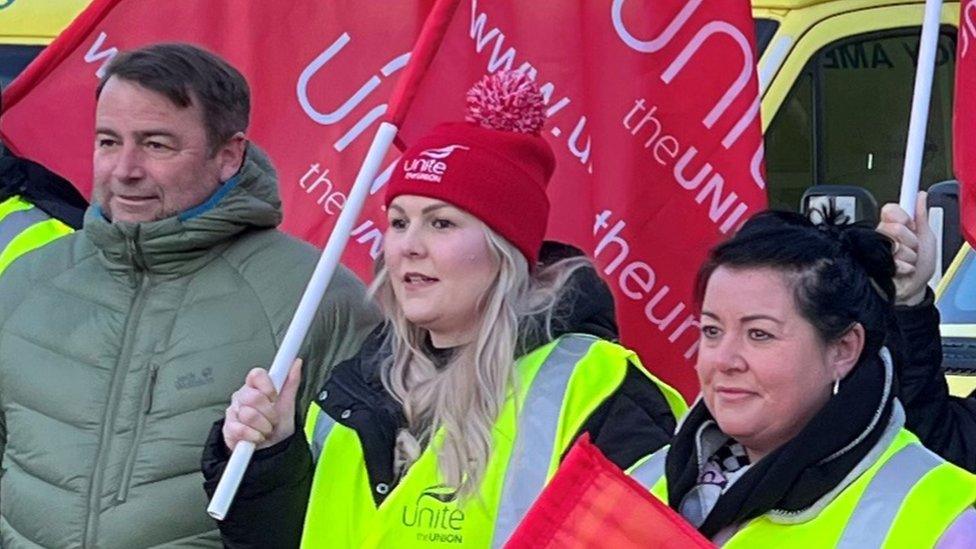NHS Wales: Advanced paramedics try to ease pressures
- Published
Health professionals work together to reduce A&E numbers but say pressure is "horrendous".
An advanced paramedic has spoken of the "heartbreaking" experiences of patients facing long delays for an ambulance response.
But Carwyn Lewis insists his extra skills help to reduce the pressure.
Up to 70% fewer people need to be taken to hospital when responded to by an advanced paramedic, compared to traditional crews.
The Welsh government said it was boosting their numbers, but staff called the pressure "horrendous".
Mr Lewis said: "The waiting times we've seen have been extraordinary, and it's heartbreaking that some people have been on the floor 24 hours or more waiting for someone to help them out.
"It's no-one's fault, it's just because of the volume of work."
"But as an advanced paramedic my extra training allows me to do more complicated assessments and examinations ... so we can keep more patients from needing to be taken to hospital."
There are currently 69 advanced paramedics in Wales - including 30 who can prescribe medication - and 50 students coming through the system. They are paramedics who have additional training and qualifications.
Mr Lewis also works closely with a special team of health and care experts to find alternative ways of treating and caring patients who've phoned 999.
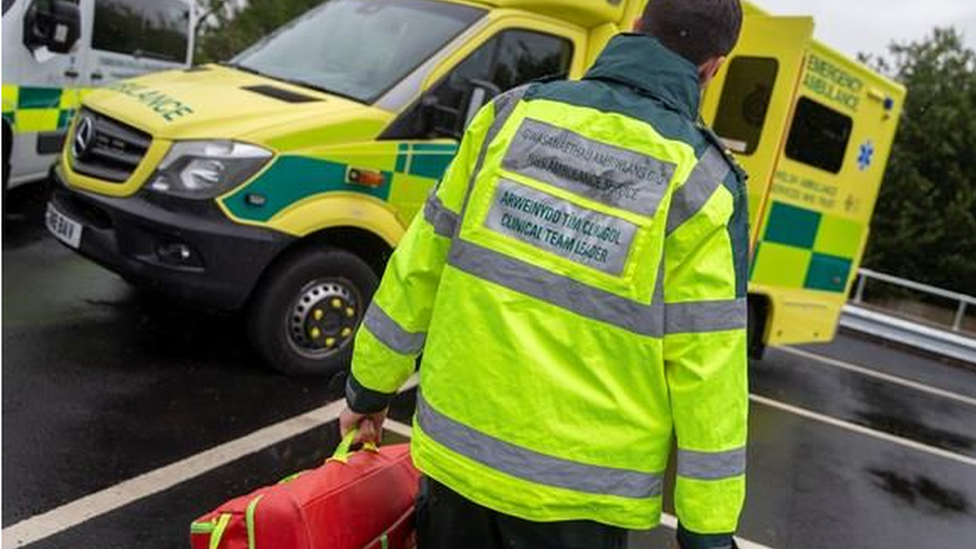
There are currently 69 advanced paramedics in Wales
He said he has witnessed many difficult winters, but the pressure this year has reached an entirely different level.
"We've got crews that will turn up for their shift at seven in the morning, make their way to the hospital from the station to relieve their night shift partners - who've been with their patient for a 12-hour shift -and they may end up being with that patients for another 12 hours.
"That's incredibly demoralising."
Patient on the floor
BBC Wales had the opportunity to witness the impact of pressures first hand, shadowing a 12-hour shift in a rapid response vehicle.
A man in his 60s had fallen at his home in Llanelli, Carmarthenshire.
By the time Mr Lewis arrived, the patient - who had several disabilities - had been on the floor for some time.
"It's gone two o'clock in the afternoon now and this person fell yesterday evening," Mr Lewis said.
Although not badly injured, the patient's condition was a concern because, the longer someone spends on the floor, the greater the risk of complications like kidney damage.
But - after talking to the patient - instead of calling for an ambulance, Mr Lewis phoned a team of health and care professionals based in Llanelli.
He prescribed antibiotics, and asked for specialist nurses to go to the patient's home to carry out tests that would have been done in A&E.
In an office above a restaurant in the centre of Llanelli, a GP sits next to specialist nurses from the local health board. On the desk next door are therapists and council care staff.
They work together to assess calls and discuss how to use their different skills to prevent people from having to go to hospital, or help get them discharged more quickly.
'We're learning off each other every day'
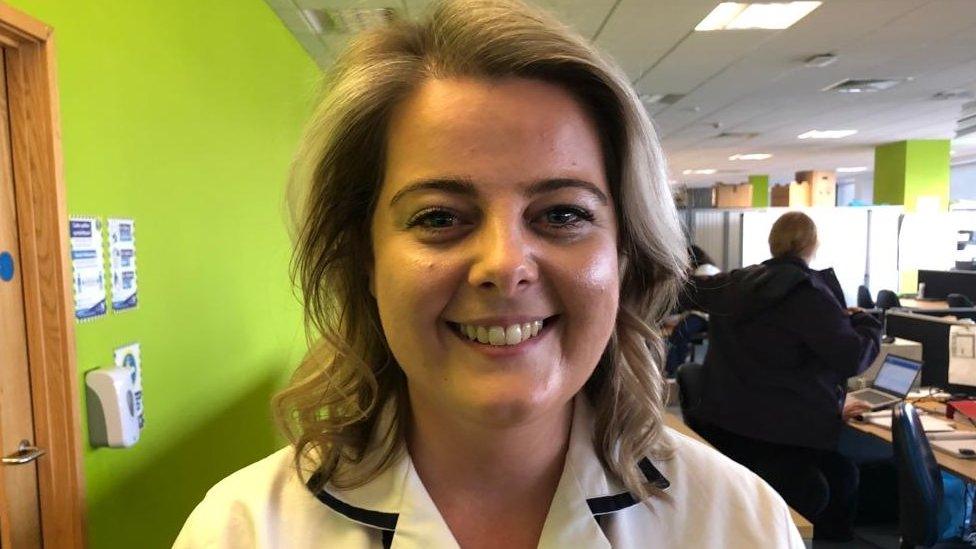
Physiotherapist Indeg Jameson is part of the Home First team in Llanelli
Indeg Jameson, a community physiotherapist, said: "We're sitting here together and bouncing off ideas. We're learning off each other every day.
"Between October and January, we've succeeded in keeping around 400 people away from Glangwili hospital, Prince Philip hospital, Amman Valley and Llandovery hospitals. That's 400 fewer people in those beds."
'Horrific'
Sam Davies, another advanced paramedic, said about 70% of the team's calls would otherwise end up in A&E.
"In six months or so, we've managed to flip the numbers, so now between 30-40% go to A&E," she said.
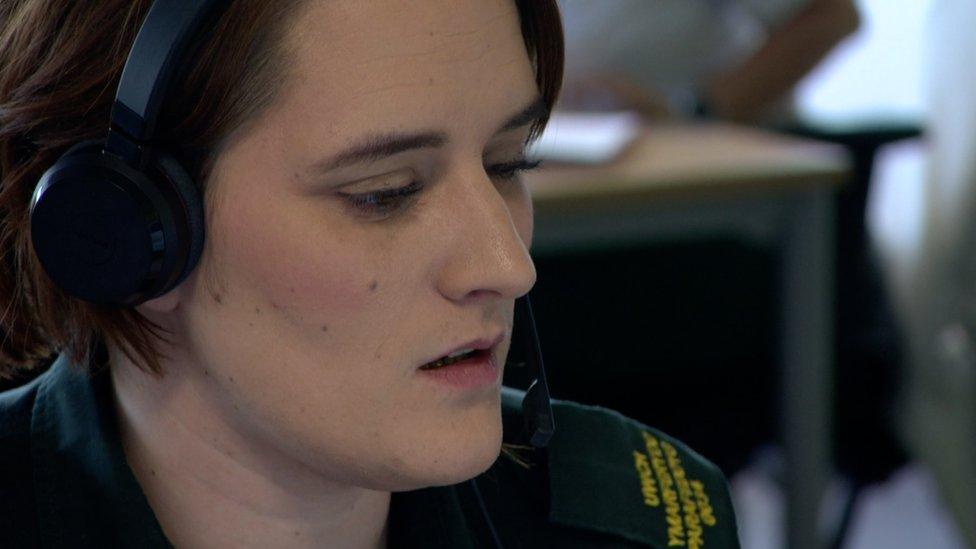
Sam Davies said the strain on the service is "horrific"
Despite this, Ms Davies says the strain on the service is "horrific".
"I've been in the ambulance service 14 years and I've never known a time like this," she said.
Health Minister Eluned Morgan said: "Advanced Paramedic Practitioners (APPs) are just one way we are ensuring people receive the right care, in the right place.
"Early intervention can avoid unnecessary hospital admissions for our already overstretched emergency departments."
Andy Swinburn, director of paramedicine at the Welsh Ambulance Services Trust, added that they are working to boost advanced paramedic numbers "to ensure more patients can benefit from their skills".
- Published26 January 2023
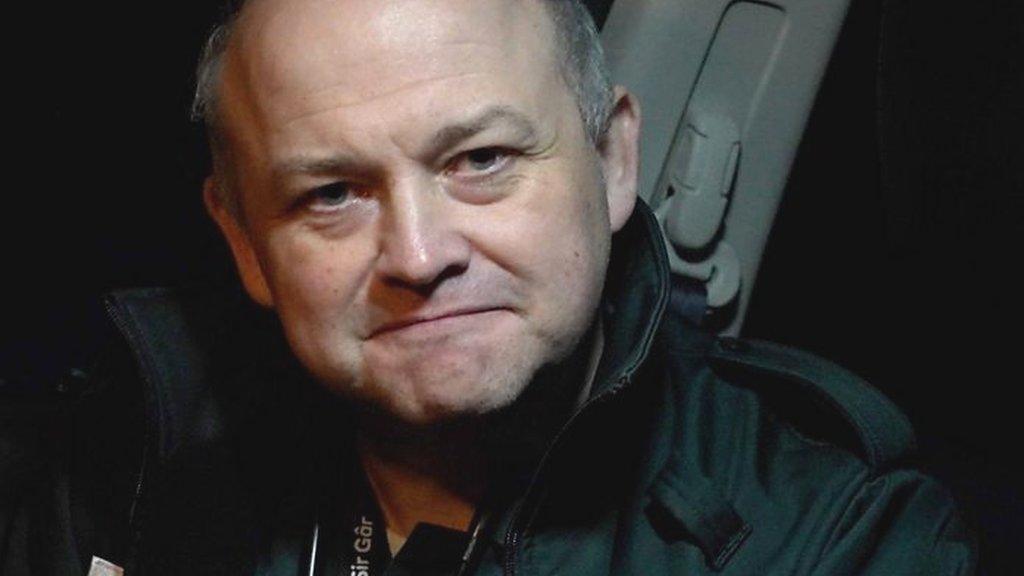
- Published11 January 2023
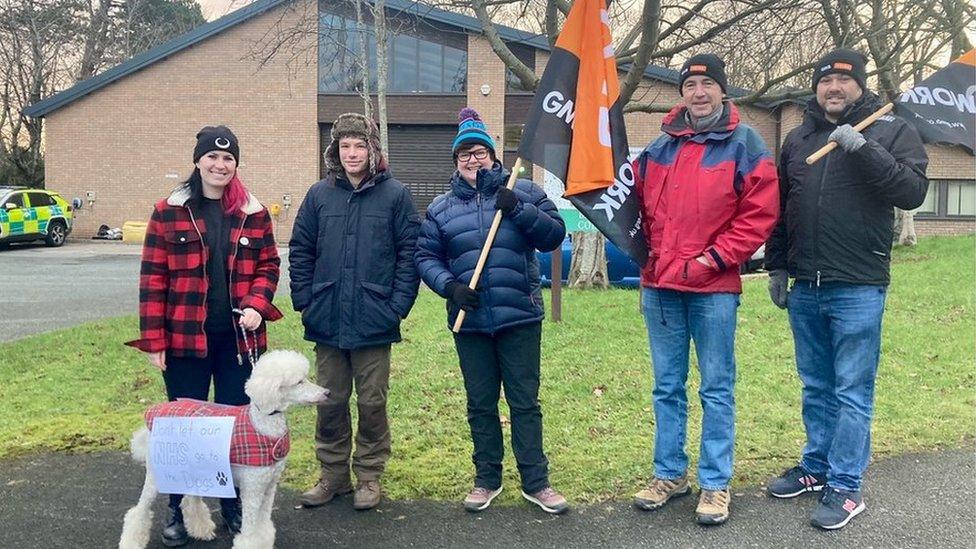
- Published12 January 2023
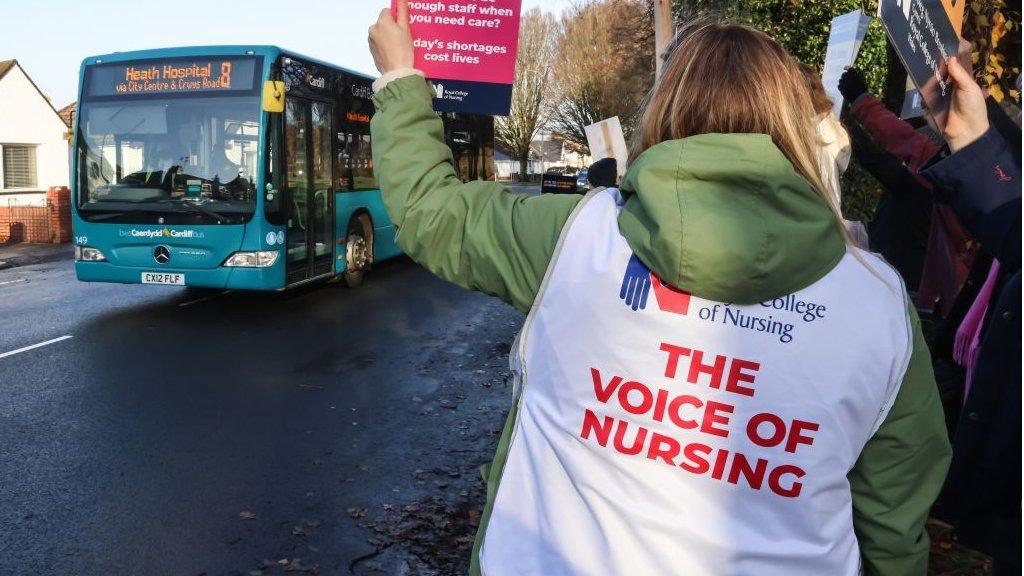
- Published21 December 2021
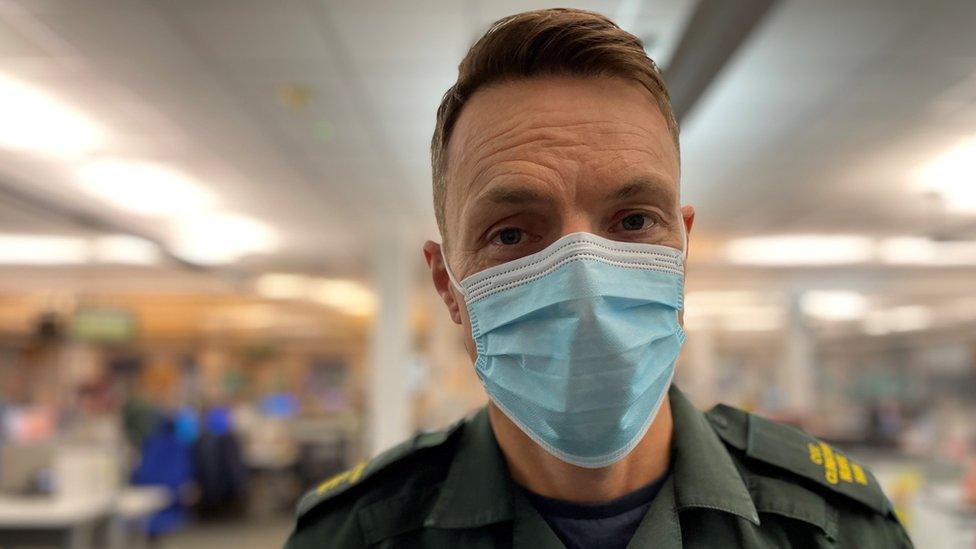
- Published25 March 2022
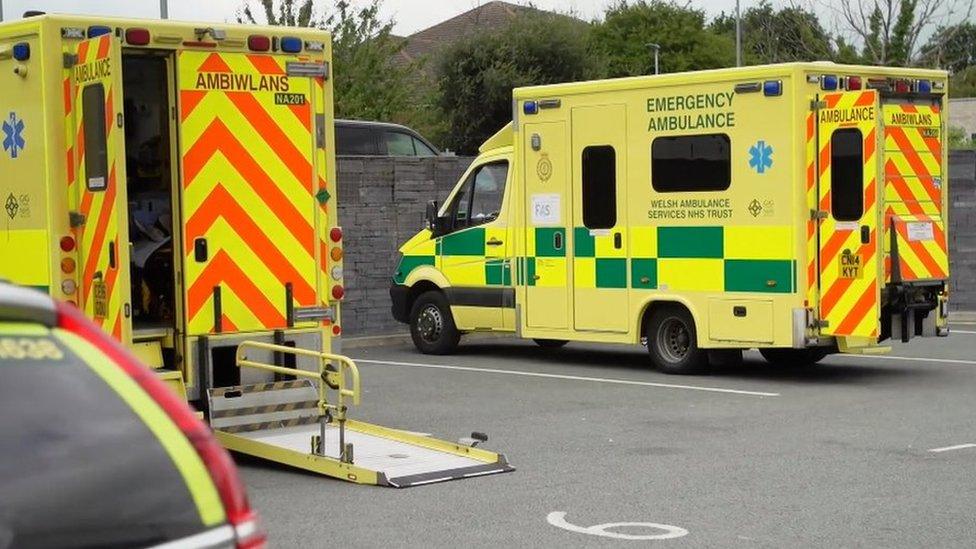
- Published19 January 2023
